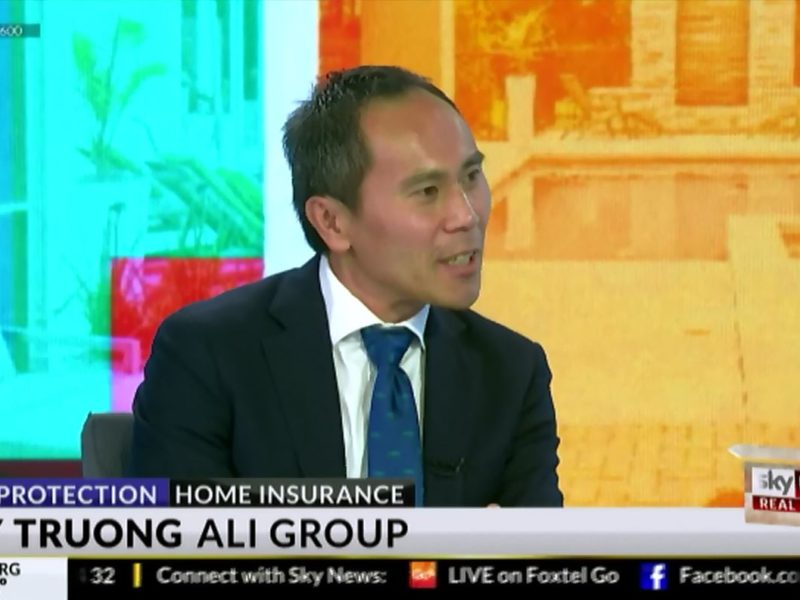Let’s be real. If you’re studying a communications degree, you would probably already have an idea of the competitiveness of securing a job after graduation. Many universities provide the opportunity for students to take part in an internship alongside uni, whereas some will encourage you to seek experience on your own.
You might be thinking: Surely, I can get a job with a PR agency once I have my degree in hand?
Not only will that be difficult but solely relying on your degree to propel you into the workforce is unlikely to prepare you for what you’ll actually be expected to do in a grad position.
Isabella and I will be talking about our internship experiences and giving you advice on preparing yourself for the comms industry.
ISABELLA’S PR AGENCY INTERNSHIP LESSONS
Isabella has just finished her communications degree at the University of Technology Sydney and has been working part-time at The Ideas Suite while on the last legs of her degree. In her second year of her studies, Isabella interned at a boutique PR agency in Sydney for some hands-on experience. Isabella said that the best thing her internship did for her was give her the opportunity to network. “I cannot emphasise enough how important building a professional network is. All my recent opportunities are from networking and if you are able to give yourself that head start before you graduate, life will be so much easier when it comes to finding a job.”
Isabella also says that through her internship she has learnt the importance of attention to detail “University will teach you to be a good writer, but I believe experience will teach you to become a great one,” she says.
MY OWN PR AGENCY EXPERIENCE
I am currently in my third year of my journalism/communications dual degree and majoring in public relations. With the advantage of carrying dual citizenship and having great contacts, I took part in a full-time internship overseas in Singapore for six months in my second year of uni. Working in a different country was not only a big adjustment to my lifestyle but an interesting introduction to the operation of the media overseas.
There are many negative preconceptions about internships and the amount of knowledge and quality experience you are likely to receive. Hence, why I chose to do my internship full-time. If you are only interning once a week over a couple of months, employers are likely to not invest as much time into involving you in their operations and you may get stuck with tasks such as tidying up or doing the coffee runs. However, if you dedicate to full-time work over a shorter time period (I suggest over the mid-year or Christmas break, so it doesn’t interfere with studies) your employers and team are more likely to teach you the back-end systems and involve you in accounts as well as allow you to be part of client meetings.
Below, I list some of the things you might learn as an intern in a PR agency:
- Time management and organisational skills when meeting deadlines
- Media monitoring
- Writing blogs and simple media releases
- PR results reports
- Social media content creation
- How to source and compile media coverage
- Agency operations
- Contributing to brainstorming meetings
- Liaising with media and influencers
- Supporting clients with launches and other events
- Generating media contact lists
- Proofreading and editing media releases
TIPS FROM JULIA, THE IDEAS SUITE AGENCY DIRECTOR
Julia has been working in the PR industry in Sydney for 17 years and here she shares some of her tips as an employer.
Julia says that employers can be a little reluctant to employ uni graduates without prior PR experience, as there is often a lack of agencies resources to train graduates from the ground up. In some cases, graduates may have not had adequate experience in certain programs and office skills, and therefore may not be confident in general office procedures, using Microsoft Office, keeping records, corresponding confidently and effectively, and contributing to meetings.
A majority of consultancies operate from Windows, while uni students are more likely to have been working from Macs over the course of their degree. So having familiarity with a Windows PC and applications is a must when applying for a role in communications.
Internships also teach you good email etiquette and phone manner which ultimately helps build confidence when communicating with journalists and other industry professionals.
Another thing that is important to note is the laws when it comes to internships. Australian companies cannot legally offer unpaid internships – only when it is required to fulfil a university subject. For anything beyond that, your employer is required to pay you minimum wage with casual loading. Beware of agencies that try to get around this law.
HOW TO GET VALUE OUT OF YOUR INTERNSHIP AT A PR AGENCY
Sometimes internships can be a little unfulfilling in terms of the work load you are given. There is no point doing an internship that doesn’t teach you anything, so it is important to take initiative when you do go out on your internship. You can do this by asking for more responsibility. Learn how to use the necessities such as Excel, PowerPoint, Word and other platforms your agency may use such as media monitoring and media contact databases.
It also might be helpful putting your hand up for the PR Agency’s own social media account management. You may find that many agencies get so busy, they forget to make time for their own brand. This will not only show your initiative and be a big help to the team, but it will help familiarise you with content creation – another great skill to have.
It’s a good idea to also ask for deadlines when given tasks, as well as proofreading or editing tasks. This will help you become a more efficient worker and have a sharper eye for detail – two things that employers will look for in interviews.
IT’S NOW TIME TO GET OUT THERE!
Hopefully, this has given you the confidence boost you need to get out there and seek your first or next internship. Remember, we all have to start somewhere and the experience you develop before you finish your studies will not only help you get your foot in the door but build your confidence and connections within the industry.









